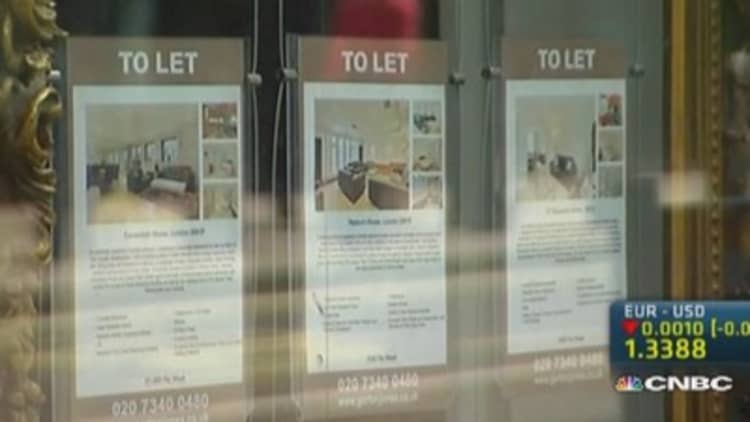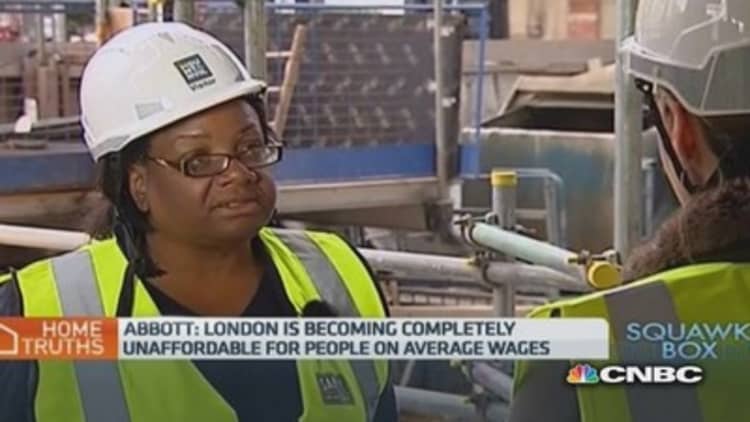
How high can London house prices go? You can hardly get on a bus or sit in a restaurant in the U.K.'s capital without some discussion along these lines.
When you look back over the past decade, the dip in London house prices around the credit crisis looks like a mere blip, instead of the descent many feared. In recent years, record low interest rates and burgeoning consumer confidence in the U.K.'s economic recovery, have made the rise in house prices seem almost unassailable.
Yet now there are worrying signs of a cooling. Will this be followed by further gradual rises? Or is London property in a bubble which is about to pop?
The top end of the market has been inflated partly by headline-grabbing investments from Russia, the Middle East and China, as investors sought safe havens and sterling stayed low. This has pushed wealthy local buyers out of Mayfair and Kensington to areas like Battersea.
Yet beneath the high-end headline-grabbing deals, there is increasing talk of an affordability crisis in London, with first-time buyers unable to get a foot on the property ladder without substantial help from their parents. House prices are now more than five times the average male salary for the first time since the credit crisis, and those being left behind are being dubbed Generation Rent.
Read MoreAppeal of London property wanes for foreign buyers
And there are more people trying to sell Londoners' houses than ever before, with estate agent the most popular new job in the country in 2012.

The government has announced plans to help tackle the issue by building new homes in Kent, but, there aren't huge amounts of Londoners desperate to live in the county.
Read MoreForget buying, wealthy Russians now renting in London
There are also concerns about those who have stretched themselves to afford the average £492,000 ($821,400) London properties cost now. With a high proportion of mortgages tied to the Bank of England's base rate, and that interest rate set to rise, what will they do with an extra few hundred pounds added to their monthly outgoings?
With this in mind, it's not surprising Mark Carney, governor of the Bank of England, has called the housing market "the greatest risk to the domestic economy."
And it's also likely to be one of the most important factors in next year's general election. If middle class voters are seeing their children priced out of the property market, they may be less likely to put their tick next to the Conservative Party candidate in May next year. And the opposition Labour Party is already trying to appeal to the squeezed middle by talk of a cost of living crisis. London's property market is going to assume even more importance as a battleground for votes.
- By CNBC's Catherine Boyle


